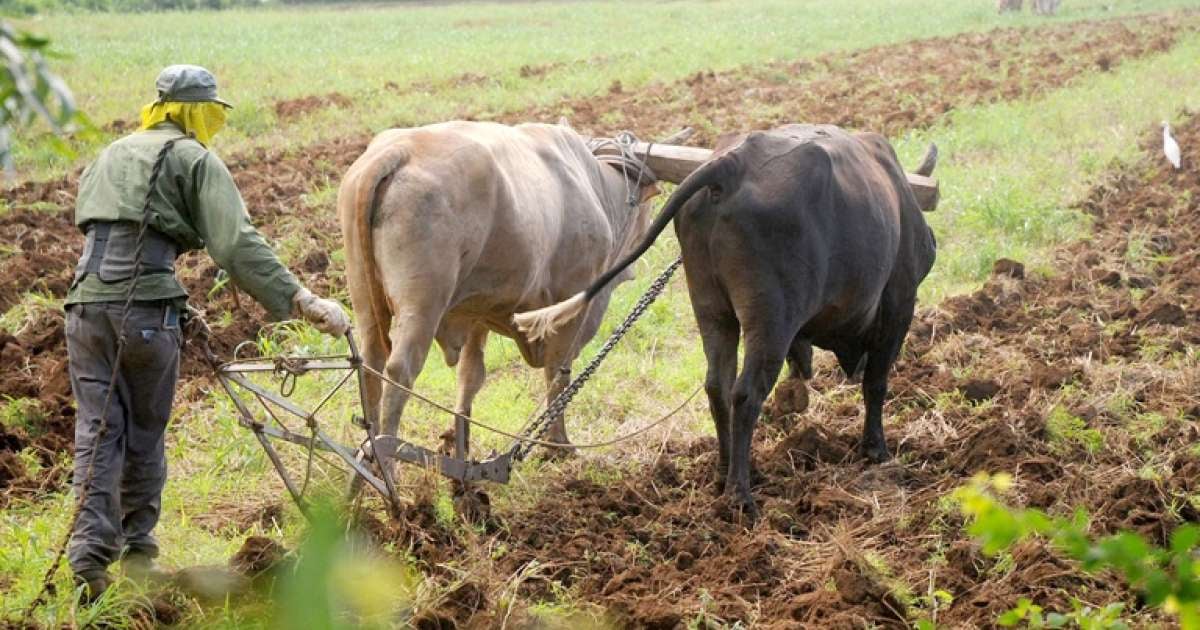The Cuban government has revoked land rights from 137 farmers in Ciego de Ávila, citing alleged "repeated violations of current legislation" according to a meeting led by Salvador Valdés Mesa, Vice President of the Republic. This action takes place amidst a critical juncture for the nation's agricultural production, characterized by significant failures in food supply targets and a worsening crisis in the farming sector.
The Cuban News Agency reported that during the discussion, Valdés Mesa claimed that the province's livestock sector is "out of control," accusing some producers of diverting milk to non-state markets. Regulatory bodies were also criticized for their lenient and permissive management that allows such irregularities.
This decision comes against a backdrop of a 500,000-liter milk deficit in the province's annual plan, highlighting both the lack of essential supplies and the systemic disorganization within the production framework. The land withdrawal impacts farmers who often labor under challenging conditions, struggling with limited resources, equipment, and state support.
Meanwhile, authorities demand "increased efforts" to meet production goals without presenting tangible solutions to the shortages suffocating the sector. Instead of addressing the producers' needs, the government focuses on punitive control measures, which jeopardize the population's food security and heighten pressure on small-scale farmers.
Despite announcements of a 42% increase in the cold season campaign compared to the past ten years, delays in essential crops like root vegetables (bananas, yucca, sweet potatoes, and taro) cast doubt on the stated objectives. Valdés Mesa emphasized the need to industrialize yucca for flour production and other derivatives, underscoring its role in reducing import dependency. However, he acknowledged that Ciego de Ávila's current infrastructure limits processing to just three tons per day, far short of the 300 tons planned, revealing a vast gap between goals and the system's actual capacity.
The situation in Ciego de Ávila also mirrors the challenges faced by the sugar industry, which is bracing for a constrained harvest season. Only the Ciro Redondo mill is expected to operate, grappling with issues related to machinery, biomass supply, and fuel, factors that could halt operations for several days.
In September, the Cuban government imposed new restrictions on housing construction on land granted in usufruct, aiming to tackle what it describes as "irregularities in agricultural land constructions." According to Decree 105 of the Council of Ministers, published in Official Gazette number 92 on September 23, these changes primarily impact farmers who received land parcels in usufruct and have built homes or made structural improvements.
The new decree amends Decree 350, which regulates Decree-Law 358 concerning the granting of idle state lands in usufruct. From now on, building homes will not be permitted on various land categories, including those within urban perimeters, lands designated for territorial and urban planning, lands intended for family self-sufficiency, and those with environmental, defense, or national security considerations.
Previously, a Cuban farmer complained that the island's government had denied him usufruct rights to state-owned land in the province of Holguín, despite his plans to use it for food production that would benefit the public. In statements to the independent outlet CubaNet, Alexander Hidalgo Aguilera expressed his frustration over this development while the country grapples with a severe food crisis.
